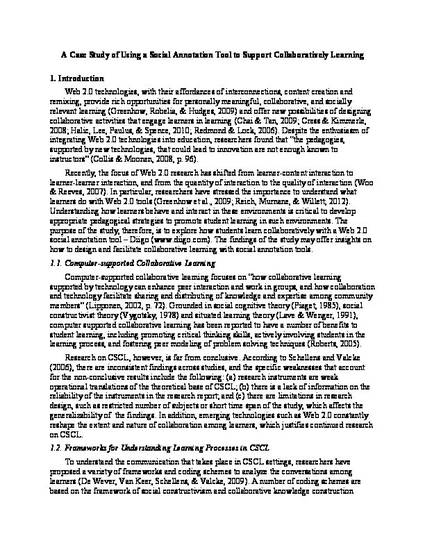
The purpose of the study was to understand student interaction and learning supported by a collaboratively social annotation tool — Diigo. The researcher examined through a case study how students participated and interacted when learning an online text with the social annotation tool — Diigo, and how they perceived their experience. The findings suggested that students participated actively in the collaborative learning activity and were engaged in a variety of behaviors including self-reflection, elaboration, internalization, and showing support. Although students generally had a moderately positive attitude toward using the social annotation tool for collaborative learning, a few problems were identified. In particular, students found it distracting to navigate through a large amount of annotation while reading the text. The study has implications for future research on using or developing social annotation tools for educational purposes.
Available at: http://works.bepress.com/gaof/16/
